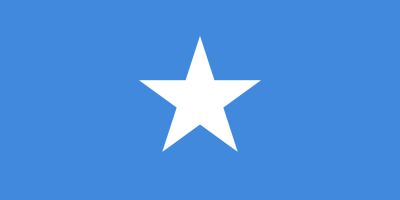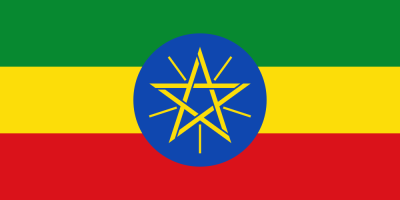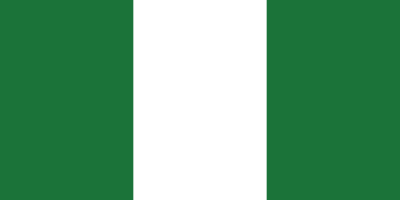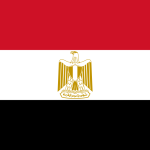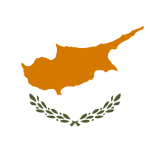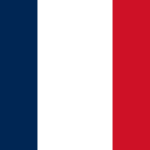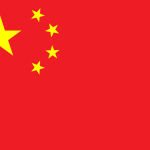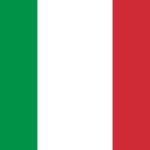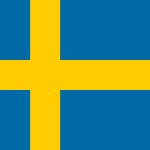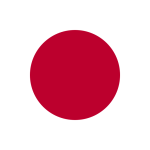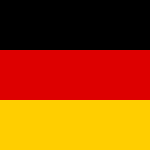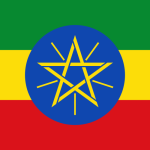South Africa flag color codes is a bold symbol of the nation’s unity and identity. The specific color codes used on the South African flag play an important role in accurately recreating this iconic banner. This article will examine the various South Africa flag color codes in HTML HEX, RGB, PANTONE, HSL, CMYK, HWB, and NCOL formats. Understanding the precise South Africa flag color codes allows designers, developers, and anyone looking to integrate the colors into a project to faithfully match the flag’s vibrant hues. Whether you need the CMYK mix for printing, RGB for digital design, or the hex triplets for web applications, this article provides the essential Pantone colors, HTML codes, and color model data to accurately reproduce the green, gold, red, white, and blue of the South African flag. With the South Africa flag color codes.
Table of Contents
What are the colors of South Africa flag?
The colors of the South African flag are:
- Saffron/Gold (Pantone 1235 C) – This gold color represents the wealth of the country.
- White – The white represents peace and unity.
- Green (Pantone 355 C) – The green represents the lush natural vegetation of South Africa.
- Red (Pantone 179 C) – The red represents the bloodshed during the struggle for freedom.
- Blue (Pantone 286 C) – The blue represents the clear sky and the future potential of the country.
The hex triplet values for these colors are:
- Gold: #FFB81C
- White: #FFFFFF
- Green: #007F3E
- Red: #C8102E
- Blue: #00247D
The RGB values are:
- Gold: RGB(255, 184, 28)
- White: RGB(255, 255, 255)
- Green: RGB(0, 127, 62)
- Red: RGB(200, 16, 46)
- Blue: RGB(0, 36, 125)
So in summary, the five Pantone colors on the South African flag are essential for accurately recreating this important national symbol.
South Africa flag color codes & Color Names:
BLACK
| Color Model | Value |
|---|---|
| HTML | #000000 |
| HEX | 000000 |
| RGB | 0, 0, 0 |
| PANTONE | Black |
| HSL | 0°, 0%, 0% |
| CMYK | 0%, 0%, 0%, 100% |
| HWB | 0°, 0%, 100% |
| NCOL | #000000 |
YELLOW
| Color Model | Value |
|---|---|
| HTML | #FFD100 |
| HEX | FFD100 |
| RGB | 255, 209, 0 |
| PANTONE | 109 C |
| HSL | 45°, 100%, 50% |
| CMYK | 0%, 18%, 100%, 0% |
| HWB | 45°, 0%, 0% |
| NCOL | #FFD100 |
GREEN
| Color Model | Value |
|---|---|
| HTML | #007749 |
| HEX | 007749 |
| RGB | 0, 119, 73 |
| PANTONE | 327 C |
| HSL | 152°, 100%, 23% |
| CMYK | 100%, 0%, 39%, 53% |
| HWB | 152°, 39%, 53% |
| NCOL | #006837 |
RED
| Color Model | Value |
|---|---|
| HTML | #DE3831 |
| HEX | DE3831 |
| RGB | 222, 56, 49 |
| PANTONE | 1797 C |
| HSL | 2°, 67%, 52% |
| CMYK | 0%, 75%, 78%, 13% |
| HWB | 2°, 78%, 13% |
| NCOL | #BC271D |
BLUE
| Color Model | Value |
|---|---|
| HTML | #000099 |
| HEX | 000099 |
| RGB | 0, 0, 153 |
| PANTONE | 285 C |
| HSL | 240°, 100%, 30% |
| CMYK | 100%, 100%, 0%, 40% |
| HWB | 240°, 0%, 40% |
| NCOL | #000099 |
WHITE
| Color Model | Value |
|---|---|
| HTML | #FFFFFF |
| HEX | FFFFFF |
| RGB | 255, 255, 255 |
| PANTONE | N/A |
| HSL | 0°, 0%, 100% |
| CMYK | 0%, 0%, 0%, 0% |
| HWB | 0°, 100%, 0% |
| NCOL | #FFFFFF |
What is the meaning of colors in the South Africa flag?
The five colors of the South African flag represent the following:
- Saffron/Gold – Represents the wealth and resources of South Africa. It symbolizes prosperity.
- White – Denotes peace and unity between all South Africans, regardless of color or background.
- Green – Represents the lush natural vegetation and plant life of South Africa’s landscape.
- Red – Symbolizes the bloodshed and sacrifice during the struggle for freedom and equality. It reminds of those who died for liberty.
- Blue – Stands for the clear blue skies and future potential of the country and its people.
In summary:
- Gold represents wealth and prosperity
- White symbolizes peace and unity
- Green denotes South Africa’s natural beauty
- Red signifies sacrifice and struggle
- Blue embodies optimism and potential
The progressive colors and symbolism of the South African flag reflect the country’s diverse heritage and its dreams for the future. The flag aims to unite all South Africans under shared values of freedom, nature, and optimism after years of division and discrimination. Its meaning is tied deeply to the nation’s history and aspirations.
Explore More Flag Colors:
FAQs: Frequently Asked Questions:
Is South Africa a rich or Poor country?
Key points about South Africa’s economic situation include:
Rich Natural Resources: South Africa is rich in natural resources, including minerals such as gold, platinum, and diamonds. It has a well-developed mining sector, which has historically been a crucial contributor to the country’s economy.
Industrialized Economy: The country has a diversified industrial base, including manufacturing, finance, and services. South Africa is also part of the BRICS group of emerging economies, alongside Brazil, Russia, India, and China.
Income Inequality: Despite its economic potential, South Africa faces challenges related to income inequality. The legacy of apartheid has had a lasting impact on the distribution of wealth, and efforts to address these disparities are ongoing.
Poverty and Unemployment: A significant portion of the population faces poverty and unemployment challenges. High levels of unemployment, particularly among the youth, contribute to social and economic concerns.
Government Efforts: The South African government has implemented various programs to address economic challenges, including poverty reduction initiatives, job creation plans, and social welfare programs.
Is South Africa famous for?
Some of the aspects for which South Africa is particularly famous include:
Wildlife and Safaris: South Africa is renowned for its rich biodiversity and is home to a wide variety of wildlife, including the “Big Five” (lion, elephant, buffalo, leopard, and rhinoceros). Many tourists visit South Africa to experience safaris in its national parks and game reserves.
Cultural Diversity: South Africa is celebrated for its cultural diversity, with a mix of ethnicities, languages, and traditions. The country’s cultural richness is reflected in its music, dance, art, and cuisine.
Nelson Mandela and Apartheid Struggle: South Africa gained global attention for its fight against apartheid, a system of institutionalized racial segregation and discrimination. Nelson Mandela, the iconic anti-apartheid leader, became the country’s first black president and a symbol of reconciliation.
Beautiful Landscapes: South Africa boasts diverse and stunning landscapes, including Table Mountain in Cape Town, the Drakensberg Mountains, the Garden Route, and picturesque coastal areas. The country is also known for its vineyards and wine regions.
Robben Island: Robben Island, located off the coast of Cape Town, gained significance as a political prison during the apartheid era. It is famous for being the place where Nelson Mandela and other political prisoners were held.
Cape Town and the Cape of Good Hope: Cape Town is a popular destination known for its iconic Table Mountain, beautiful beaches, and vibrant cultural scene. The nearby Cape of Good Hope is a famous landmark at the southern tip of the African continent.
Is South Africa part of Asia Or Europe?
South Africa is not part of Asia or Europe; it is located on the southern tip of the African continent. Geographically, South Africa is in Africa, and it is often referred to as a part of the African continent. Africa is the second-largest continent in the world, and South Africa is one of its most southern countries.
What are 5 facts about South Africa?
Certainly! Here are five interesting facts about South Africa:
Diverse Wildlife:
South Africa is home to a remarkable variety of wildlife, including the “Big Five” — lion, elephant, buffalo, leopard, and rhinoceros. The country’s numerous national parks and game reserves, such as Kruger National Park, attract tourists seeking safari experiences.
Nelson Mandela:
Nelson Mandela, a global symbol of anti-apartheid resistance and reconciliation, served as South Africa’s first black president from 1994 to 1999. He played a crucial role in ending apartheid and promoting unity in the post-apartheid era.
Cape Town’s Table Mountain:
Cape Town, one of South Africa’s most iconic cities, is overlooked by Table Mountain. Table Mountain is a flat-topped mountain and a prominent landmark. Visitors can take a cable car or hike to the summit for breathtaking panoramic views of the city and coastline.
Apartheid Legacy:
South Africa has a complex history marked by apartheid, a system of institutionalized racial segregation and discrimination. The dismantling of apartheid in the early 1990s paved the way for a democratic and inclusive South Africa.
Cradle of Humankind:
South Africa is known as the “Cradle of Humankind” due to the significant fossil finds in the region. The Sterkfontein Caves, a UNESCO World Heritage site, have yielded important hominid fossils, providing insights into human evolution.
What is the richest country in Africa?
Nigeria is often considered the richest country in Africa in terms of Gross Domestic Product (GDP). Nigeria has a diverse economy with significant contributions from the oil and gas sector, agriculture, telecommunications, and services.
Is South Africa a good country living?
Positive Aspects:
Diverse Culture: South Africa is known for its rich cultural diversity, with a mix of ethnicities, languages, and traditions. This diversity contributes to a vibrant and dynamic society.
Natural Beauty: The country is renowned for its stunning landscapes, including mountains, beaches, and wildlife reserves. South Africa offers a wide range of outdoor activities and scenic locations.
Economic Opportunities: South Africa has a diverse and industrialized economy, providing opportunities in various sectors. The country is also part of the BRICS group of emerging economies.
Historical and Cultural Heritage: South Africa has a complex history, including the struggle against apartheid. Historical sites, museums, and cultural events reflect the nation’s resilience and commitment to reconciliation.
Challenges:
Crime: South Africa has faced challenges related to crime, including high rates of violent crime and property crime. Crime levels can vary across regions, and it’s essential to be aware of safety precautions.
Income Inequality: The country grapples with significant income inequality and poverty. While there is a growing middle class, disparities between affluent and disadvantaged communities persist.
Unemployment: South Africa has relatively high unemployment rates, particularly among the youth. Job opportunities can vary by sector and region.
Healthcare and Education: While there are well-developed healthcare and education systems, there are also disparities in access and quality, with urban areas often having better services than rural areas.
What is the main religion in South Africa?
Christianity: Christianity is the largest religion in South Africa, with a significant number of adherents. Various Christian denominations are present, including Protestantism, Roman Catholicism, Anglicanism, and various independent Christian churches.
Islam: Islam has a notable presence in South Africa, particularly among the Indian and Malay communities. Mosques are found in various cities and towns across the country.
Hinduism: Hinduism is practiced by a significant portion of the South African population, primarily among the Indian community. Temples and cultural festivals are important aspects of Hindu religious life in the country.
Traditional African Religions: Many South Africans practice traditional African religions, which are diverse and may vary among different ethnic groups. Ancestors and spirits play a central role in these belief systems.
Judaism: South Africa has a small but historically significant Jewish community. Synagogues and Jewish cultural institutions are found in cities such as Cape Town and Johannesburg.
Buddhism: There is a small Buddhist community in South Africa, mainly among individuals who have embraced Buddhism as a spiritual practice.
Is it safe to go to South Africa now?
Here are some considerations regarding safety in South Africa:
Crime: South Africa has faced challenges related to crime, including both violent crime and property crime. Certain urban areas may have higher crime rates, and it’s essential to be vigilant and take precautions. Tourists are advised to stay in well-traveled and reputable areas, especially at night.
Health Concerns: Depending on the region and the time of year, there may be health concerns such as malaria or other diseases. It’s advisable to check with healthcare professionals and follow recommended vaccinations and precautions.
Political Stability: South Africa has a stable political system, but it’s always a good idea to stay informed about the current political climate and any potential disruptions.
Natural Disasters: South Africa is prone to occasional natural disasters such as wildfires or floods. It’s important to stay informed about local conditions and follow any advisories or warnings.
COVID-19 Considerations: As of my last knowledge update in January 2022, the global situation regarding the COVID-19 pandemic is a relevant factor. Travel restrictions, health protocols, and entry requirements can change, so it’s important to check the latest information and follow any guidelines provided by health authorities.
What is the currency in South Africa?
The currency used in South Africa is the South African Rand, abbreviated as ZAR. The symbol for the Rand is “R,” and it is further subdivided into 100 cents.

